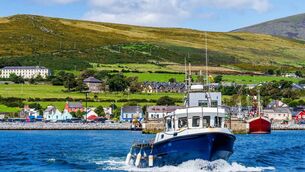Cork's €1.5bn commuter rail service will have 'multi-generational impact', says project leader

The public consultation begins on Phase 2 of the Cork Area Commuter Rail Programme which includes eight new stations.
The €1.5bn investment in developing a commuter rail service in Cork will have a “multi-generational impact” lasting up to a century, the man overseeing the massive project has said.
Irish Rail’s AJ Cronin, the delivery manager for the Cork Area Commuter Rail (CACR) programme, was speaking as Irish Rail launched a public consultation on the second phase of the programme, which includes proposals for eight new commuter rail stations in the metropolitan region, five of which could be built by 2030.













